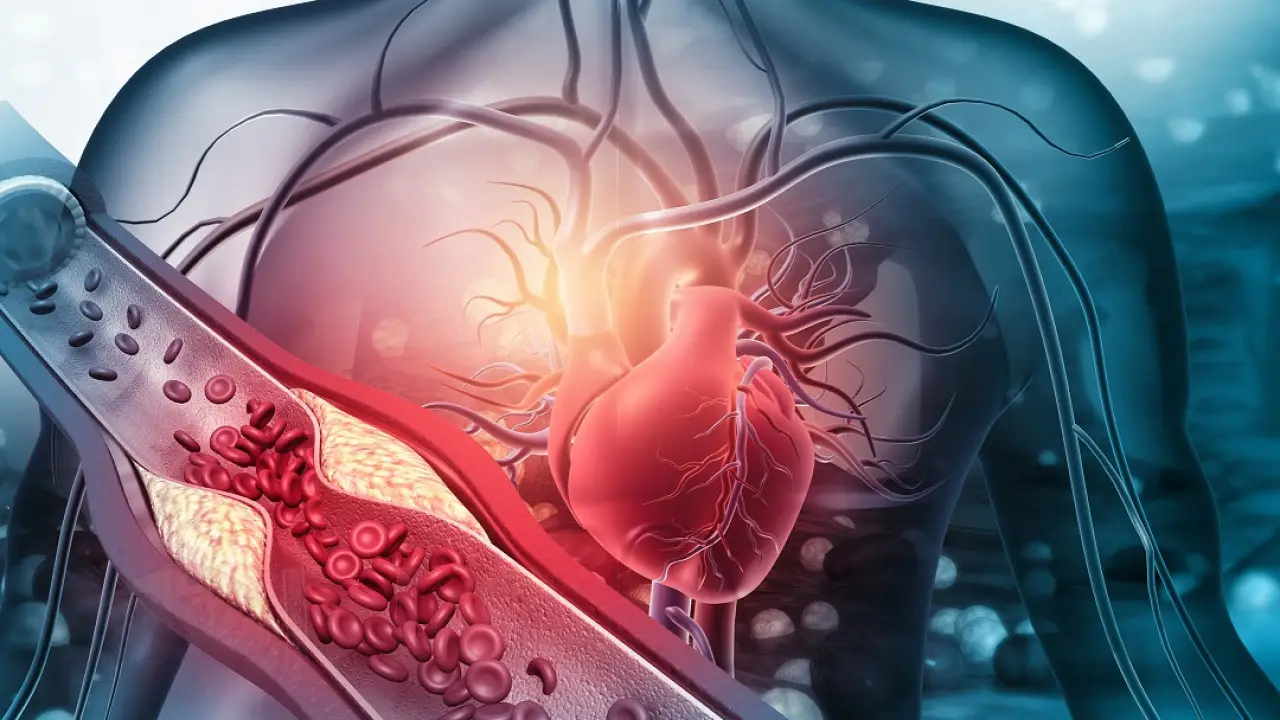
Fat Deposits Near the Heart (Social Media)
Lifestyle News:Heart attack risk isn’t just linked to body fat but also to fat deposits near the heart. These fat deposits can block blood vessels and reduce blood flow, leading to serious heart problems. It's crucial to recognize the 6 hidden signs of heart trouble early—such as chest pain, difficulty breathing, excessive fatigue, sweating, dizziness, and pain in other parts of the body. Taking timely action can prevent complications, so it’s important to stay vigilant and seek medical help if needed.
Fat accumulation near the heart can be just as dangerous as excess body fat. These fat deposits can cause blockages in blood vessels, leading to reduced blood flow. This can ultimately result in heart attacks or other cardiovascular issues. Experts highlight that these hidden fat layers, while not always noticeable, can severely affect heart health, even without obvious signs.
Experiencing sudden chest pain or a feeling of pressure can be a warning sign of fat deposits near the heart. This pain can range from mild to intense and may be a precursor to a heart attack. If you experience such pain, it's important to consult a doctor immediately to prevent the situation from worsening.
Fat deposits near the heart can restrict blood flow, causing oxygen levels in the body to drop. This can lead to difficulty breathing, especially if the issue is not addressed. If you suddenly find it hard to breathe, it might be a serious symptom of heart trouble that requires prompt medical attention.
A feeling of constant tiredness and weakness, even without exertion, can indicate a problem with the heart. Fat deposits near the heart can reduce blood circulation, preventing the body from getting enough energy. If this fatigue is persistent, it should be checked by a healthcare professional.
Unexplained sweating and feelings of anxiety can also be signs of fat buildup near the heart. This occurs when the heart is unable to pump blood effectively, leading to insufficient oxygen supply to the body. If you experience these symptoms frequently, it could be a warning sign that shouldn't be ignored.
Fat deposits near the heart can also cause reduced blood flow to the brain, resulting in headaches and dizziness. If you frequently experience these symptoms, it may indicate that your heart is struggling to maintain adequate circulation, which could lead to a heart attack.
Heart attack pain is often not limited to the chest. People may experience discomfort in the arms, neck, back, or jaw. This can happen when fat deposits are blocking blood vessels near the heart, leading to pain in other parts of the body. If you experience this type of pain, seek medical advice immediately.Fat accumulation near the heart is a serious health concern that can go unnoticed until it leads to major health issues like heart attacks. Recognising the hidden signs and seeking timely treatment is crucial for preventing further complications. Regular checkups, healthy eating, and exercise can go a long way in preventing these risks and maintaining heart health.





Copyright © 2026 Top Indian News
